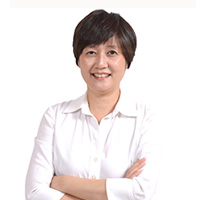 Do not talk about religion and politics at the dinner table, we have been taught. The age-old maxim shows just how sensitive and controversial a subject those matters can be. Best to avoid them because you may offend someone across the aisle in politics or of another faith, it is said.
Do not talk about religion and politics at the dinner table, we have been taught. The age-old maxim shows just how sensitive and controversial a subject those matters can be. Best to avoid them because you may offend someone across the aisle in politics or of another faith, it is said.
Talking about religion and politics seem to arouse passions that lurk inside us that are usually kept at bay by our rational, cool heads. If you have seen political or religious rallies, you know what I mean.
The combination of religion and politics is a volatile brew, especially when associated with nationalism, as we see in many trouble spots around the world today. The humanitarian crisis of Rohingya Muslims in Myanmar, where the Muslim minority is being systematically forced to flee villages by government forces, immediately comes to mind.
It was against such background that the International Association of Religion Journalists, Union of Journalists for Diversity (Sejuk) and Universitas Multimedia Nusantra organized an international conference on religion journalism titled “Reporting Religion in Asia,” Oct. 17-19 in Jakarta, Indonesia.
Reporters from Canada, the US, Denmark and Italy joined their colleagues from Indonesia, Malaysia, Singapore, Thailand, the Philippines, India, Pakistan, Sri Lanka, Myanmar, East Timor and Korea in discussing reporting on religion in an area that is ethnically and religiously very diverse.
It is rare that journalists get to take time off from their beats and discuss work. Listening to fellow journalists from around the world talk about the environment in which they work, their particular challenges and how they go about doing their work and participating in discussions about best practices and the way forward was an eye-opening experience.
For someone coming from a society that has been essentially ethnically homogeneous, a society where the term “multicultural family” came to popular usage only in the last two decades at most, the experiences of my colleagues in other parts of Asia left a deep impression. I also pondered whether Korea was ready to embrace ethnic and religious diversity. With the government projecting 1 in 5 households to be multicultural family households by 2020, Korean society will soon have to adapt to being a society of various ethnicities and religions.
A key to living in harmony and tolerance is dialogue, according to the many experts gathered at the Jakarta conference. As the largest Muslim-majority democratic state in the world, Indonesia offers valuable lessons. A sprawling archipelago of numerous islands, ethnic groups and religions, Indonesia faces constant challenges in living in tolerance and peace.
With only six religions officially recognized by the state, followers of minority religions often face persecution. There is a heady mix of religion and politics as well, as in many other countries around the world, with politicians exploiting religion to advance their causes at the price of subjugating others.
With the recent Jakarta gubernatorial race characterized as an election that ultimately hinged on the candidates’ faiths, concerns are growing about next year’s more than 100 local elections and the national general elections in 2019. “Religion becomes important around the time of elections,” said an editor of a leading newspaper in Indonesia.
Indonesia’s Foreign Minister Retno LP Marsudi, who gave a keynote address at the conference, said the media played an important role, providing accurate information and correcting false assumptions.
Media practitioners felt a sense of duty to give voice to the oppressed. A newspaper in Indonesia, for example, has focused on interfaith issues since 1998 when riots, largely racially motivated, left more than a thousand people dead and led to the resignation of President Suharto.
In Korea, where more than 56 percent of the population claim no religion, according to a 2015 national census, where Christians make up the plurality of those with religion with 19.7 percent responding as Protestants and 7.9 percent as Catholics, and where Buddhists account for 15.5 percent, there have as yet been no major incidents of religious intolerance.
Yet, it cannot be denied there is collusion between politicians and religious figures in Korea as well. Conservative Christian groups allied with ultraconservative politicians in rallying against the impeachment of former President Park Geun-hye. At rallies that ostensibly start out as prayer meetings, the staunchly anti-Communist conservative Protestants and ultraconservative politicians often wave the Korean flag in one hand and American flag in the other.
Trouble brews when religions and politics mix. The media can play an important role in promoting tolerance and harmony with accurate and fair reporting, and by not shying away from discussing religion and politics in the same breath when necessary.
By Kim Hoo-ran
Kim Hoo-ran is a senior culture writer at The Korea Herald. She can be reached at khooran@heraldcorp.com
-
Articles by Kim Hoo-ran










